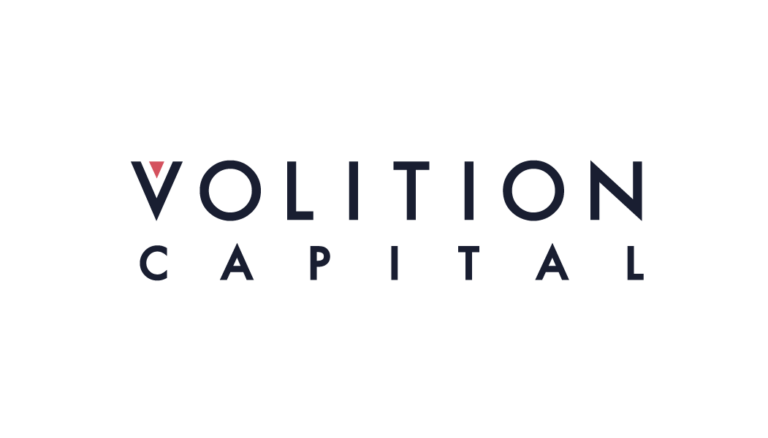
Welcome to the first edition of The Volition View.
In this bi-weekly newsletter, we will be sharing our perspectives on the ever changing venture landscape including thought pieces from our partners, news from portfolio
companies, curating the must-read stories of the week, and much more.
Today’s Edition:
- Deep Dive: SVB: A Fresh Perspective | Market Perspective: Rule of 40
- Must-Read Resources: GTM Mistakes, Rippling, Amazon
- Volition News: Larry Cheng Interview with StrictlyVC
- Portfolio News: Creatio, Burst, Black Kite| Portfolio Fun: Thor!
Let’s Dive In!
DEEP DIVE
SVB: Reporting Requirements Must Change.

This piece is authored by Roger Hurwitz, Founding Partner at Volition Capital. Roger has decades in venture experience including stints at GE Capital and Fidelity Ventures prior to Volition. Roger’s primary areas of focus include investing in software and technology-enabled business services.
At this point, the recent events at Silicon Valley Bank have led to more questions than answers: Who is to blame? Management? The Fed? Should depositors’ uninsured funds be made whole? Over the coming weeks, there will be time to answer these questions. However, I want to share some thoughts on the venture debt market and a simple step we can take to ensure that something like this does not happen again.
I want to start off by clearly stating that the venture industry is extraordinarily appreciative to banks like SVB for all that they have done for the venture ecosystem. They understand the risk of supporting tech and life sciences companies as well as why such emerging companies are critical for ongoing innovation and job creation. Simply put, such banks have been phenomenal partners and are a key component to our industry’s success.
The core issue comes to light when you take a closer look at the deposits of SVB and how they were invested. Deposits were invested into two key buckets of investment securities – securities held for sale and securities held to maturity. Fair value can be determined for both buckets based on observable price adjustments and measuring the impact of changes in benchmark interest rates. Yet, securities held to maturity are accounted for at cost with no adjustments for changes in fair values, as compared to securities available for sale which are held at fair value with such changes reflected on a company’s financial statements. So even though each bucket may contain the exact security, the accounting treatment for fluctuations in market prices are not the same. The reporting depends on the intention to liquidate such investment securities prior to maturity, not the economic value of the securities. At the end of 2022, SVB held $26B of securities available for sale that needed to be marked-to-market with such loss shown in the P/L, but owned a whopping $91B of securities designated as held to maturity where no hit for unrealized losses needed to be made.
It makes no sense that management can change its intent on how to classify the company’s investment securities, such as from intent to hold to intent to sell, and the P/L can suddenly look dramatically different without any underlying change in the securities owned. Bottom line is regardless of the intent to sell or not, the stated value of investment securities on a balance sheet should be what they are worth on such date, not some maturity date many years down the road. While the fair value of held to maturity securities was disclosed in the financial statements, seeing such unrealized losses on the P/L may very well have changed management’s asset allocation strategy and behavior to execute against its business plan.
SVB’s announcement earlier this month that it took a loss of $1.8B on securities sold caused a shock to the system. This contributed not only to a run on the bank but contagion to other banks that serve an invaluable role in the venture industry. Financial statements need to talk to people about the risks within the business. SVB ended 2022 with $16.3B of stockholders’ equity, not considering the change in fair value of about $15B on securities held to maturity. If required to reflect this adjustment on the income statement, it would have wiped out 90% of stockholders’ equity. It is hard to imagine the decision-making of the leadership team would not have been vastly different if this fair value adjustment was captured in the income statement, not just in notes of a 193 page 10-K. It is time for the accounting treatment to change to provide better transparency on the value of such securities at any point in time. There is much debate on what went wrong and how SVB collapsed, but there should not be any debate on changing the reporting requirements. We need SVB and other regional banks to survive and thrive, and this simple change can go a long way in helping investors understand a business.
-Roger
MARKET PERSPECTIVE
The Rule of 40
Key Takeaway: There is a strong negative correlation between interest rates and the Median RO40 Index Revenue Multiple.
Three Key Points:
- The 5-Year US Treasury yield began 2022 around 1.3% and closed the year at 4.0% representing the highest level in nearly 15 years.
- Companies growing < 30% are generally profitable experienced a lower decline revenue multiples in 2022 versus businesses that generally have prioritized growth over profitability
- Higher interest rates impact a company’s cost of issuing debt or equity, which can lead to unnecessary dilution or an inability to raise capital for business that have historically relied on outside capital to fund growth.
Link: This graph was created by our very own Peter Keenan who recently released a “Year in Review” piece on the Rule of 40 for 2022 which you can read in its entirety by clicking here
THREADS, MUST-READS, AND KEY STATS
GTM Mistakes, Rippling, Amazon Layoffs
Key Tweets:
- Chobani –The Story of Chobani (@tgorny)
- Munger –Dinner with Charlie Munger (@FoundersPodcast)
- GTM –Go-To-Market Mistakes (@samdblond)
Must Reads:
- Rippling – A $500M Term Sheet in 12 Hours (TechCrunch)
- AI –The Acceleration of Artificial Intelligence (Contrary)
- Gates –The Age of AI has Begun (Gates Notes)
Key Stats:
- Consumer – Consumer Spending Decline (Citi)
- Amazon – Amazon Laying off 9,000 Employees (Amazon)
- Substack – Substack’s One Cent Experiment (Product Lab)
VOLITION NEWS
Larry Cheng on StrictlyVC Podcast

The Rundown: Volition Founding Partner Larry Cheng was a guest on the StrictlyVC podcast where he discussed Volition’s $675M Fund V, his current contrarian bets, and so much more.
Sound Byte: On investing in a contrarian sector like AdTech:
“We really love contrarian sectors, and adtech is a great example of that…You’re playing in a sea of giants with Facebook and Google and others. But we’ve had some great success and if I had to call out two subsegments in particular, I’d point to the proliferation of online video, and adjacent to that is the proliferation around social media and the implications of that for both content and commerce businesses.”
-Larry Cheng
Links: Audio: Click here | Transcript: Click here
PORTFOLIO NEWS
Creatio, Burst, Black Kite

- Creatio: Creatio Named One of 100 Companies That Matter (EINPresswire)
- Burst: Burst Expands Line at Walmart (Aegis)
- Black Kite: The Top Third Party Risk-Management Software (EINPresswire)
PORTFOLIO FUN
Super73 is Officially Thor Approved!

Thanks for the read! We would love to hear what you think, so feel free to send us an email if you would like to chat.
-The Volition Team
